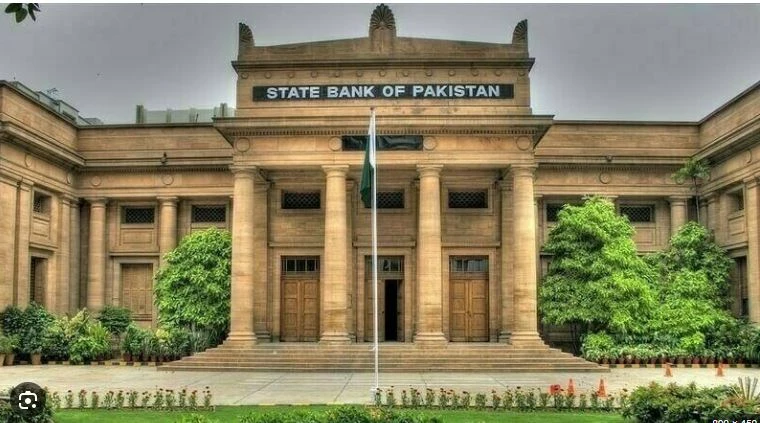Country’s macroeconomic environment remains challenging: SBP

Stay tuned with 24 News HD Android App

State Bank of Pakistan (SBP) has issued its annual Financial Stability Review (FSR) for the Calendar Year CY2023, which sees improvement in the financial system of the country, reported 24NewsHD TV channel.
SBP review presents the performance and risk assessment of various segments of the financial sector including banks, Microfinance banks (MFBs), non-bank financial institutions (NBFIs), insurance, financial markets and financial market infrastructures (FMIs).
The report says the country’s macroeconomic environment remained challenging amid rising inflation, weak FX inflows and pressures on external account and local currency, and low business confidence, particularly in the first half of CY2023.
However, the policy measures and regulatory interventions that were taken to address growing imbalances coupled with securing of nine-months Stand-by-Agreement (SBA) from IMF helped in improving the macroeconomic conditions in second half of CY2023.
SPB said inflation started falling, economic growth recovered, and exchange rate stabilized towards the year’s end.
In this backdrop, the financial sector exhibited strong growth and performance and maintained its financial soundness and operational resilience. The asset base of the financial sector expanded by 27.0 percent in CY2023, which was mainly driven by the banking sector.
While volatility in financial markets remained high, the financial sector particularly the banking sector remained resilient and grew by 29.5 percent during the review period, said the review.
The growth in assets was primarily driven by investments in government securities while private sector advances contracted in the backdrop of stressed macro-financial conditions.
The expansion of the banks’ balance sheet was mainly funded by deposits, which posted a 20-year high growth in a high return environment. The credit risk, nonetheless, did not present serious concern as non-performing loans (NPLs) to loans ratio marginally increased to 7.6 percent by end December 2023 from 7.3 percent in December 2022, and the provisioning coverage further improved to 92.7 percent. Earnings of the banking sector remained healthy on the back of high rates and expansion in earning assets, supporting the solvency position.
Accordingly, the capital adequacy ratio (CAR) improved to 19.7 percent by end December 2023, remaining well above the minimum regulatory requirement. The Islamic banking institutions continued to maintain growth momentum in CY2023 as well. With strong earnings and comfortable asset quality indicators, resilience of the Islamic banks further improved. However, microfinance banks (MFBs) sector continued to experience stress in CY2023.
The Review reveals that non-bank financial sector also showed healthy performance during CY2023. The asset base of Development Finance Institutions (DFIs) and Non-Bank Financial Institutions (NBFIs)observed strong expansion. Moreover, despite slowdown in economic activity, the insurance sector witnessed growth in assets and gross premium.
The overall position of the non-financial corporate sector was encouraging as solvency indicators and repayment capacity remained satisfactory. Especially, the large borrowers of banking sector exhibited stable repayment capacity and there were no significant delinquencies during the year under review. The FSR also highlights the operational resilience of Financial Market Infrastructures (FMIs) during CY2023.
The e-banking transactions continued to drive growth in retail payments. Importantly, SBP moved to implement the third phase of Raast’s person-to-merchant (P2M) mode to facilitate digital payment acceptance for merchants and businesses.
Keeping in view the rapidly evolving dynamics of risks to financial stability, SBP continues to proactively strengthen its regulatory and supervisory regime.
Going forward, overall risks to financial stability appear to be manageable due to anticipated moderation of macroeconomic stress and strong buffers and risk management capabilities of the banking sector.
The latest stress test results suggest that the banking sector has adequate resilience to withstand the severe but plausible macro-financial shocks in the medium term. However, policy continuity on structural reforms remains critical for both sustained improvement in country’s macroeconomic fundamentals and the resilience and performance of the financial sector.
Reporter: Ashraf Khan
